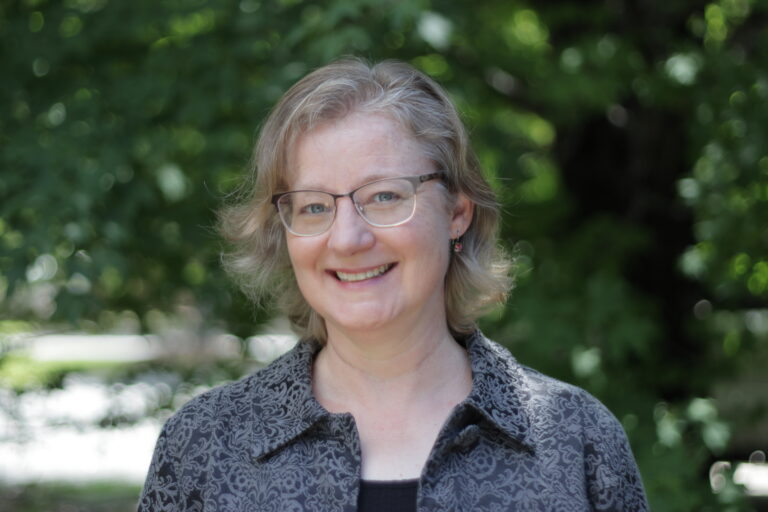For a while during my misspent youth, I was a regular viewer of The Addams Family – not so much because I especially loved the program, but because it was on. That’s more or less the same reason I watched Wednesday on Netflix on the other day: I was curious, I was laid up with a cold (all better now, thanks for asking), and there it was.
It was entertaining and I don’t recommend it.*
What follows is not an artistic critique. The series’ production quality is sufficient that keener critics can engage in their quibbles, but pundits can simply accept that it’s a viable contender for audience attention and move on to the more pressing question of whether you and your family ought to be watching it. Here are my reservations.
It is Morally Incoherent
All humor rests on comparison. To understand the punchline, we have to recognize a normal of some kind with which the joke is contrasting.
- Slapstick is a contrast with the normal world where people can walk down the street without slipping on banana peels or having cream pies thrown in their face.
- Quotations that are wittily apropos when taken out of context are funny in part because we recognize the contrast with the original quotation.
- Puns are funny (to the extent we grudgingly admit they are funny) because they rebuild the language we know, and for which we have a set of expectations, in a way that our brains recognize as novel and amusing.
(I will forbear from elaborating on that last point — ask me to pontificate on Pun Theory at your own risk. Because I will. Don’t say you weren’t warned.)
The humorous conceit of The Addams Family is that we take the spooky expectations of the horror genre and package them into a lighthearted sitcom about a warm-hearted, loving family.
I would call it dark humor, but it’s not exactly that. Dark humor is the genre where we make jokes about truly evil things, and in the process engage, in some way, with the reality of that evil. The Addams Family conceit, in contrast, never really engages with the evil it alludes to in setting up its one central joke.
In this case, Wednesday herself is the joke, the contrast between our expectations of sweet little girls and what we get in the story package. We have the child who delighted in guillotining her dolls, but this is family comedy so it’s just a joke, it’s not the early childhood of an actual psychopathic killer. In any case, the actual psychopath would more likely delight in guillotining someone else’s dolls, an important distinction that is part of why we can suspend disbelief and go with the joke.
The trouble with the new series is that Wednesday is a murder mystery. That’s a small problem because in the first episode we get deadpan humor about Wednesday actually killing people, and see for ourselves some of the bloody results of her letting piranhas loose in the swimming pool to get revenge on some evil-doing schoolmates.
The show never clarifies whether the alluded-to killings really happened or are just a bluff, and it never therefore engages in the enormous genre transition from joking about being a murderer to suddenly taking very seriously (as one ought) the serial killer who is stalking Wednesday’s new school.
We end up with a case of this violence is fine, because it was perpetrated by our hero for reasons, and that violence (which is also motivated by revenge and bloodlust) is evil and must be stopped.
It’s an incoherence that’s hard to avoid under the circumstances.
I think it’s a moral incoherence worth giving some thought to. It is a common thread in many stories, where the audience is expected to (and usually we do) accept and even approve evil if it’s done by our protagonist.
–> That storytelling expectation is grounded in a deeper reality: There are evils (including murder) that our culture accepts and approves, and which we aren’t supposed to call evil if it’s carried out by the “good guys” and justified for reasons.
It is Spiritually Incoherent
The second incoherence is another mirror of our wider culture. Early in the show, Wednesday says that she doesn’t believe in either heaven or hell. It’s a denial of the afterlife that I think the audience is expected to relate to? Hard to be sure, but that was my impression.
It certainly came across as authorial voice; it felt and sounded exactly like a case of, “We educated moderns know better than those naïve, superstitious ancients with their self-soothing fantasies about life after death.”
Or maybe it wasn’t that. The story never answers the question. We go on to have an actual spirit from the dead become an essential player in the plot, and another resurrected spirit unleash havoc at the climax, but then never revisit this question of the afterlife?
Is Wednesday reconsidering her position? Or are we positing a metaphysical reality where spirits are a real thing but the afterlife somehow isn’t?
The story just ignores these questions, completely. It wants its paranormal and its atheism too.
Again, this seems to me an eerily true reflection of our wider culture’s sensibilities.
It Normalizes the Occult
Wednesday begins having psychic visions, in which her dead ancestor serves as a guide to unraveling the murder mystery.
I’m not going to do battle with the trope of Those Evil Witch-Burning Pilgrims generally; it’s overdone, it’s especially facile in this particular plot, but I’m not here to defend kangaroo courts and the slaughter of innocents, so I’m not falling for the false dichotomy.
I’m likewise not here to attack paranormal fantasy as a genre. The only reason Wednesday deserves some scrutiny is because the plot hinges on Evil Christians of Real History Burning Us Paranormals, with a subtext of reality to the existence of those paranormals. It’s a genre-blending that is, appropriately, as mushy as our wider culture’s acceptance of the occult.
At one point in the story, Wednesday attempts a séance in order to invoke her ancestor’s ghost and get some help with figuring out the murders she’s investigating.
There are three possibilities for what happens in these and other types of actually-practiced, in the real world, occult practices:
It’s a game of pretend. Maybe you consult the psychic and everyone knows that it’s just for fun. (The trope of the Addams family using a crystal ball instead of a telephone could reasonably fall in the category of just having fun with imaginary technology.)
We could accept this game of pretend, except for one inconvenient fact: Many, many people resort to fortune tellers and séances because they truly believe it’s all real.
It’s a lie. The second possibility is that there is no spiritual world, and when real-life people seek the assistance of spiritualists, those customers are being lied to. Perhaps in some cases the practitioner is innocently deluded about his or her own skills as well. In all cases, it’s not consensual imaginary play. It’s false and therefore predatory.
It’s real. This is the Christian belief. (Even if we also assume there are a fair number of con men working the outright-lying side of things.) We know that the spirit world is real, and we know that there are evil spirits. We know that even if you are only attempting to play at pretend you can end up invoking dangerously predatory evil spirits.
What neither Wednesday nor our wider culture do is reckon with that third reality. If you are going to invoke the spiritual world, you had better have a very clear idea of what you’re getting into.
Agnosticism is not a benign tactic on this one.
Because the occult is so extremely serious of a hazard in the real world, I have reservations about Wednesday because it normalizes occult practices as just kinda there, something to try, maybe a little weird but otherwise no-harm-no-foul.
I’m not overly worried about teenagers role-playing werewolf or siren fantasies, so long as we the grown-ups hold onto our sanity and don’t start telling young people that maybe they really are werewolves after all. The fairy-story genre is not meant to be a moral hazard.
In contrast, because séances (including Ouija boards) and fortune telling are real things that real kids and adults get sucked into out here in normal life, and because these activities can lead to devastating spiritual dangers, yes, I am uncomfortable with plots that accept these activities as quirky escapades attempted by our protagonist.
And here, again, authorial voice is everything. My impression from the show is that, just like the moral incoherence and spiritual incoherence generally, our writers and directors are just giving us a slice of themselves.
What Can a Christian Learn from Wednesday?
If there’s a single lesson I’m hoping you’ll learn it’s that a story tells on its author. If your book or script is well-written, you will communicate your fundamental beliefs, even when you are writing a nuanced and complex character, even an anti-hero.
From where I sit in the audience’s seat, I’m in no position to tell you what you should or shouldn’t watch.* I do think, though, we should take a sober measure of how much our viewing and reading choices influence us.
Exquisitely Related: The deadly beast in Wednesday is a “Hyde”, named for Mr. Hyde from The Strange Case Of Dr. Jekyll And Mr. Hyde. If you’ve never read that book, do yourself a favor and hop on it.
It is a quick, entertaining read that poses some thought-provoking challenges about our moral choices and how they change us over time.
Also related: If you want to hear me talk about the positive side of all this, I’m speaking later this month at The Catholic Writers Guild’s online conference on Evangelization for Authors. More details on what’s in my talk are over at the substack, as well as some comments on whether you are the type of person who would benefit.
And seriously: Don’t mess with the occult. Just never. No. No no no.
*I do think that if your kids are watching Wednesday, then you should watch it so you know what’s in it and can intelligently discuss it with them.
Artwork: Planisphærium Cœleste, by Frederik de Wit, circa 1670, public domain.













